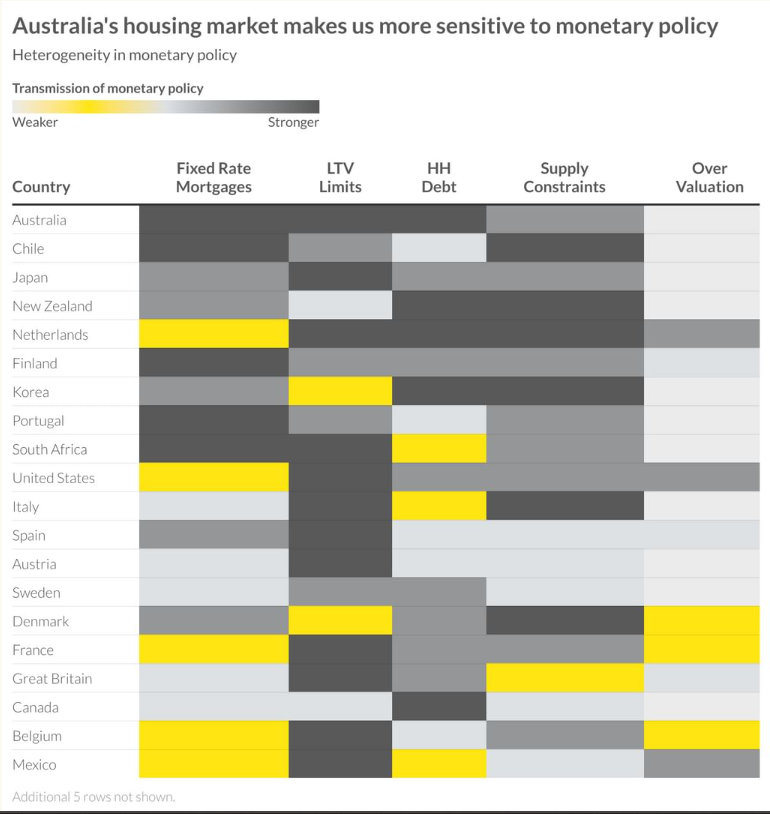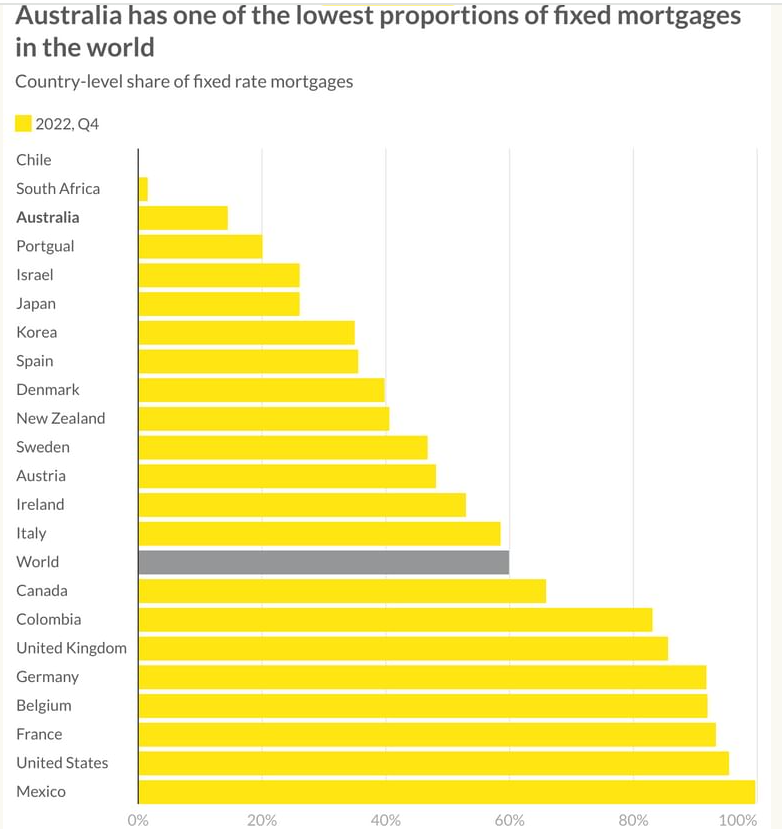

A recent study by the International Monetary Fund (IMF) has spotlighted the significant sensitivity of certain countries to monetary policy changes, particularly through their housing markets, with Australia identified as one of the most vulnerable nations, Ray White reported.
“Australia comes out as very sensitive to monetary policy for all of the reasons,” said Nerida Conisbee (pictured above), a chief economist.
“We have one of the lowest proportions of households on fixed mortgages in the world, we have high loan to value ratios, we have high levels of household debt, our housing supply is constrained and although there is no data, it is possible our homes are overvalued.”

Table: Ray White. Source: IMF
Check this link.
Despite the vulnerabilities highlighted by IMF, Australia’s economy has shown remarkable resilience. However, Conisbee warned that this resilience may be waning.
“It can’t continue, and rates need to be cut sooner or later as many of the factors that have contributed to us being resilient to higher rates are starting to wear thin,” she said.
Conisbee highlighted the increasing pressure on households, with many now struggling with mortgage payments, eroding savings, and diminishing affordable housing options.
The structure of Australia’s mortgage market has provided some buffer against economic shocks.
The competitive nature of the market and the well-capitalised position of banks have allowed for flexibility in mortgage terms.
“Most struggling mortgage holders coming off fixed loans were offered interest only loans, extended loan terms or debt consolidation,” Conisbee said.
However, she cautioned that these measures have their limits, particularly as they begin to affect investment property and holiday homeownership.

Table: Ray White. Source: IMF
The dynamic of people moving from expensive areas to more affordable regions like Brisbane, Adelaide, and Perth has provided some relief. Yet, this trend is under threat due to rising demand and construction costs, which are further straining the limited housing supply.
Australians saved significantly during the pandemic, but these reserves are depleting.
“Australia does have very high levels of household debt, but we also saved a lot during the pandemic,” Conisbee said. “Those savings, however, are increasingly being eroded and our household savings rate is now at a 17-year low.”
This eroding financial buffer is heightening the country’s sensitivity to interest rate hikes, potentially pushing parts of the economy toward recession.
“Both Victoria and Tasmania may already be in recession,” Conisbee said.
The observed trends and the ongoing erosion of economic safeguards suggest that preemptive rate cuts might be necessary.
“Ideally rate cuts are implemented sooner rather than later to prevent the rest of the country following,” Conisbee said, highlighting the urgent need for policy interventions to safeguard Australia’s economic stability in the face of increasing housing market pressures.
Get the hottest and freshest mortgage news delivered right into your inbox. Subscribe now to our FREE daily newsletter.
